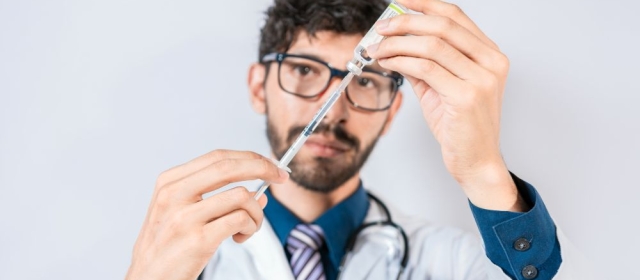
All News
Upcoming Events

- Sexual Health Topics: Men’s Sexual Health, Sexual Health Management & Treatments
Background
Peyronie’s disease (PD) is a connective tissue disorder that can result in penile deformities through the buildup of plaque, creating abnormalities such as curvatures of the penis in any direction. The reported prevalence of PD varies greatly, between 0.4-20.3%. Ventral (downward) curvatures demonstrate much lower rates (11-17% of all PD cases) than dorsal (upward) or lateral (sideward) curvatures. The common concern with reversing ventral curvatures is interference with the urinary system, so finding effective and safe ways to treat men with ventral PD curvatures is imperative to providing care.

- Sexual Health Topics: Men’s Sexual Health, Sexual Health Management & Treatments
Introduction
An inflatable penile prosthesis (IPP) is a permanent device that can be used to correct erectile dysfunction. However, despite constantly advancing surgical techniques, infection is still possible. This would require the removal and replacement of the device and is naturally a dreaded complication.

- Sexual Health Topics: Men’s Sexual Health, Sexual Health Management & Treatments
Introduction
Concomitant insomnia and obstructive sleep apnea (OSA), or COMISA, means insomnia and OSA occur at the same time, whether that’s long-term, or from time to time. Both conditions on their own have detrimental effects on overall and sexual health as well as one’s quality of life. These sleep disorders can contribute to issues such as heart problems, anxiety, depression, mood changes, and erectile dysfunction (ED).

- Sexual Health Topics: Men’s Sexual Health
Introduction
Erectile dysfunction (ED) is one of the most common sexual dysfunctions in biological males, affecting a significant population and usually increasing in prevalence with age. Previous studies have shown that physical activity can help with erectile function; aerobic exercises and activities can enhance vascular function, reduce inflammation, and improve blood flow, which all contribute to good erectile function. However, aerobic activities are not accessible for every individual and may be more difficult to do, especially as men age. Walking is accessible, simple, and free, making it a good exercise to incorporate into daily routines and potentially improve erectile function.

- Sexual Health Topics: Men’s Sexual Health, Sexual Health Management & Treatments
Introduction
Erectile dysfunction (ED) is a common condition that can impact a man’s confidence, relationships, and overall quality of life. While there are many treatments available, some men choose a penile implant as a long-term solution, especially when other options don’t work. However, one of the biggest concerns for patients considering this surgery is how their penile length will be affected.

- Sexual Health Topics: Men’s Sexual Health, Sexual Health Management & Treatments
Introduction
Erectile dysfunction (ED) happens when a man struggles to get or keep an erection firm enough for sexual activity. This condition can result from issues with nerves, blood flow, hormones, or mental health. ED is common, especially as men age, with about 37% of men aged 70–75 experiencing it.

- Sexual Health Topics: Men’s Sexual Health, Women’s Sexual Health, Mental Health & Psychology
Introduction
Sexual motivation involves the brain’s emotional, thinking, and movement systems working together to drive actions like approaching or initiating sexual activity. Sexual arousal and lying can affect brain activity, which can be measured through motor-evoked potentials (MEPs). MEPs are signals recorded from muscles when specific brain areas, like the motor cortex, are stimulated using transcranial magnetic stimulation (TMS), which uses electromagnetic pulses to temporarily activate parts of the brain.

- Sexual Health Topics: Men’s Sexual Health, Cancer & Sexual Health (Oncosexology)
Introduction
Erectile dysfunction (ED) is a common issue after prostate surgery, known as radical prostatectomy (RP), with rates varying widely between 10% and 87%. This range is due to factors like patient age, differing definitions of ED, and sometimes overly positive self-reports. ED after RP significantly impacts quality of life and can contribute to depression, as it affects men’s sense of self and masculinity.

- Sexual Health Topics: Women’s Sexual Health, Medications & Sexual Health, Sexual Health Management & Treatments
Introduction
The Food and Drug Administration (FDA) recommends using patient-reported outcomes (PROs) to evaluate treatments for low sexual interest and arousal in women. PROs are questionnaires that measure symptoms and treatment effects based on what participants report. The FDA suggests recording these frequently to avoid inaccuracies due to memory issues. Shorter recall periods, like 24-hour diaries, may capture more accurate details but can become tiring for participants, reducing their willingness to complete the study. Longer recall periods, such as monthly reports, are easier to complete but one’s memory of their experience may be influenced by unrelated events or recent experiences.

- Sexual Health Topics: Sexual Orientation & LGBTQIA+ Health
Introduction
Gender incongruence (GI) occurs when a person’s gender identity doesn’t match the gender they were assigned at birth, sometimes leading to significant mental health challenges like anxiety, depression, and suicidal thoughts. These issues often stem from both the internal conflict of gender misalignment and external pressures such as stigma and hiding one’s true identity.

- Sexual Health Topics: Women’s Sexual Health
Introduction
Urinary tract infections (UTIs) are very common, especially among women, with up to 60% experiencing one at some point. About 25% of these women will have recurrent UTIs (rUTIs), which negatively affect their quality of life, social relationships, sexual relationships, and self-esteem, causing issues like irritability and tiredness. Women with rUTIs often experience sexual problems, such as pain during intercourse, anxiety or fear about getting another UTI, and lubrication issues.

- Sexual Health Topics: Men’s Sexual Health
Introduction
Erectile dysfunction (ED) is the ongoing inability to get or keep an erection firm enough for sex. It affects up to 47% of men and becomes more common with age, increasing from 5% in men in their 40s to 15% in their 70s. Factors like high blood pressure, diabetes, smoking, alcohol use, obesity, and abnormal cholesterol levels contribute to ED and also to heart disease. Both conditions involve problems with blood vessels, making ED a potential early warning sign for heart disease.

